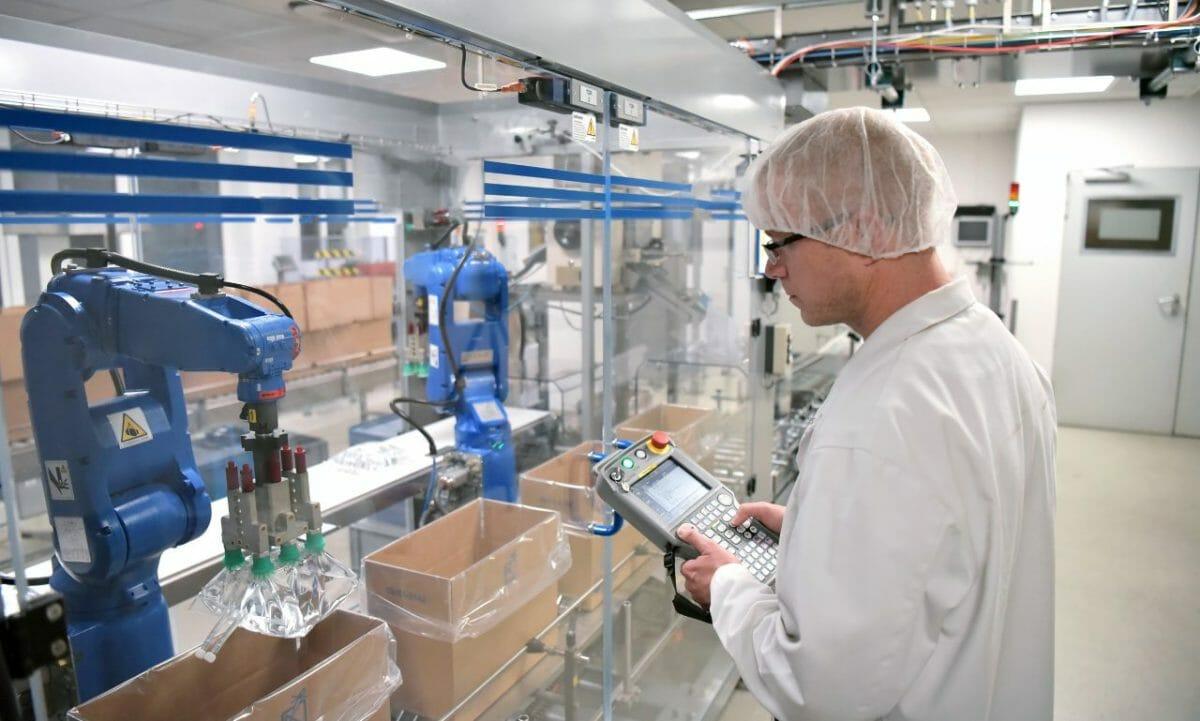The healthcare industry has witnessed a rapid transformation driven by technological advancements. Automation refers to the use of technology and software to perform tasks and processes automatically without the need for human intervention. Shaun Chadwick explores the benefits of automation in healthcare business management and how it has revolutionized healthcare organizations’ operations.
Streamlining Administrative Tasks
One of the primary benefits of automation in healthcare business management is the ability to streamline administrative tasks such as appointment scheduling, billing, and insurance claim processing. With automation, software systems can efficiently handle these tasks, reducing administrative burden and minimizing potential mistakes. This allows healthcare professionals to focus more on patient care, improving overall efficiency.
Enhanced Efficiency And Productivity
Automation in healthcare business management significantly improves efficiency and productivity within the organization. By automating repetitive tasks such as data entry and report generation, healthcare professionals can save valuable time and allocate their efforts toward more critical responsibilities. Automated systems can generate patient records, update inventory, and process invoices, allowing staff to devote more attention to patient care and strategic decision-making.
Improved Accuracy And Data Integrity
In healthcare, accuracy and data integrity are paramount. Even a minor error in patient records or treatment plans can have serious consequences. Automation plays a crucial role in minimizing human error and ensuring the accuracy and integrity of healthcare data.
With automated systems, information can be entered and stored electronically, reducing the risk of transcription errors. Moreover, automated processes can perform checks and validations to ensure data is complete, consistent, and up-to-date. By maintaining accurate and reliable data, healthcare organizations can make informed decisions and provide safer patient care.
Effective Resource Allocation
Automation in healthcare business management enables effective resource allocation by providing real-time data and insights. With automated systems, healthcare organizations can track and monitor various aspects of their operations, such as patient flow, staff performance, and equipment utilization. This data allows administrators to identify bottlenecks, streamline workflows, and optimize resource allocation. For example, automated scheduling systems can help allocate staff efficiently based on patient demand, ensuring that the right resources are available at the right time. This not only improves patient satisfaction but also maximizes the utilization of resources, leading to cost savings for the organization.
Enhanced Compliance And Security
Compliance with healthcare regulations and safeguarding patient information is critical for healthcare organizations. Automation can enforce standardized procedures and workflows, reducing non-compliance risk. They can incorporate built-in security measures, such as encryption and access controls, to protect sensitive patient data from unauthorized access. By automating compliance and security processes, healthcare organizations can mitigate risks and meet regulatory requirements more effectively.
Seamless Integration And Interoperability
Healthcare business management involves the coordination of various departments and systems within an organization. Automation enables seamless integration and interoperability between systems, such as electronic health records (EHR), billing systems, and inventory management. This integration eliminates silos and allows the free flow of information across different departments, improving communication, collaboration, and decision-making. For instance, when a patient’s data is automatically updated in the EHR system, it can trigger actions such as generating a bill, updating inventory levels, and alerting relevant departments. Such interoperability leads to smoother operations and better coordination among healthcare professionals.
Enhanced Data Analysis And Decision-Making
Automation in healthcare business management empowers healthcare organizations with advanced data analysis capabilities. Automated systems can collect and analyze large volumes of data from various sources, including patient records, financial reports, and operational metrics. Healthcare organizations can gain valuable insights into trends, patterns, and performance indicators by utilizing machine learning algorithms and data analytics tools.
This data-driven approach enables informed decision-making, strategic planning, and identification of areas for improvement. For example, analyzing patient data can help identify high-risk populations and develop targeted preventive care strategies. The ability to extract meaningful insights from data ultimately leads to better patient outcomes and more efficient resource allocation.
Seamless Patient Experience
Automation in healthcare business management is crucial in enhancing the overall patient experience. By automating appointment scheduling, reminders, and registration processes, healthcare organizations can provide patients with a seamless and convenient experience. Patients can easily book appointments online, receive automated reminders, and complete the necessary paperwork in advance, reducing wait times and improving satisfaction. Moreover, automation enables personalized patient communication, such as sending tailored health education materials and post-visit surveys. By leveraging automation, healthcare organizations can deliver patient-centered care, enhance engagement, and build long-lasting patient relationships.
Conclusion
Shaun Chadwick says automation has brought about significant benefits to healthcare business management. Automation has revolutionized healthcare organizations ‘ operations, from streamlining administrative tasks to improving efficiency, accuracy, and compliance. By leveraging technology and automated systems, healthcare professionals can focus more on patient care, allocate resources effectively, and make informed decisions based on accurate and reliable data. As technology advances, automation will play an even more significant role in shaping the future of healthcare business management, leading to improved outcomes for healthcare providers and pat


